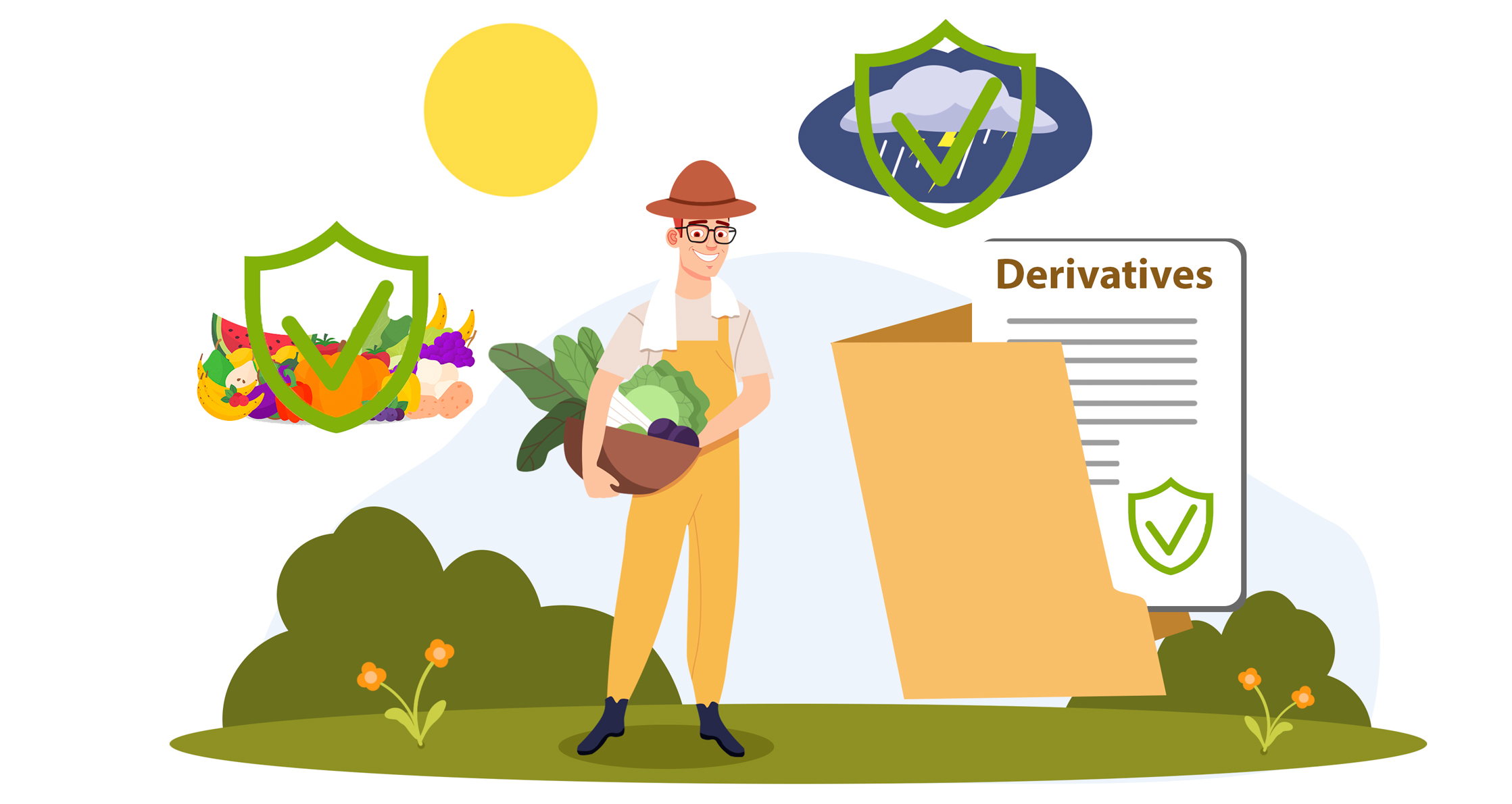
Derivatives are a type of investment that is based on other things like stocks, bonds, or even the weather. They can be used for different reasons. One reason is to protect against losses, like when a farmer uses derivatives to protect against a drop in crop prices or bad weather. Another reason is to make money by betting on the price of something, like when an investor buys a derivative that makes money if a stock price goes down. And sometimes people use derivatives to control a lot of something with only a little bit of money, which is called leverage.
There are different types of derivatives, like Options, Futures, Forwards, and Swaps. Each one works a little bit differently, but they all involve making a deal based on the value of something else.
In recent years, options trading has grown in popularity among individual investors, particularly with the emergence of Internet trading platforms. Without actually purchasing or selling the underlying asset, Options allow investors to speculate on how the price of a specific stock or index will change in the future.
One recent example of options trading making headlines is the phenomenon of "meme stocks." These are stocks of companies that have gained significant attention on social media platforms like Reddit, resulting in a surge of buying activity and a rapid increase in stock prices. One of the most notable examples is GameStop, a struggling video game retailer whose stock price skyrocketed earlier this year after a group of retail investors on Reddit coordinated to buy large amounts of call options on the stock, effectively driving up the price.
Another example of options trading in the news is the ongoing controversy surrounding the options trades made by members of Congress. Several lawmakers have come under scrutiny for making trades in options stocks that appear to have been based on nonpublic information obtained through their roles in government. More openness and regulation regarding the trading activities of MPs and other government employees have been demanded as a result of this.
Overall, options trading can be a powerful tool for individual investors to speculate on the future movements of the stock market, but it also carries significant risks and requires a deep understanding of the underlying assets and market conditions.As with any investment, you should do your research and base your choices on your personal financial objectives and risk tolerance.
Farmers and commodity producers frequently employ futures contracts as a hedge against the risk of product price changes. To guard against the chance of corn prices falling before the harvest, a farmer can, for instance, sign a futures contract to sell a specified quantity of corn at a specific price on a future date.
Futures contracts can also be used for speculation by investors who believe they can predict the direction of price movements in a particular market. For example, an investor who believes that the price of oil will rise in the future may enter into a futures contract to buy oil at a lower price now, with the intention of selling it later at a higher price.
It's vital to remember that trading futures include taking risks because it requires making predictions about uncertain future price fluctuations. Before investing in futures, as with other investments, it's crucial to do your homework and comprehend the dangers.
Forwards, in their most basic form, are agreements between two parties to buy or sell something at a predetermined price on a future date. Businesses use them to manage the risk of price variations in raw materials or other items they must acquire or sell.
For example, imagine a farmer who wants to sell his wheat harvest to a bakery in six months. He worries that the price of wheat may drop by then, so he enters into a forward contract with the bakery to sell his wheat at a fixed price. This way, he locks in a price for his wheat and avoids losing money if the price drops.
Similarly, the bakery wants to ensure a steady supply of wheat at a predictable cost. By entering into the forward contract with the farmer, the bakery avoids the risk of paying more for wheat if the price goes up in the future.
Forward contracts are customized agreements between the two parties, and they are not traded on a public exchange like the stock market. This makes them less liquid and increases the risk of one party defaulting on their obligations. However, for businesses that need to manage the risk of price fluctuations, forward contracts can be an important tool
A swap is a type of agreement between two people who want to exchange money. There are different kinds of swaps, like interest rate swaps and credit default swaps.
In an interest rate swap, one person agrees to pay a set amount of money while the other person agrees to pay a changing amount of money based on the interest rate. This is done to avoid the risk that comes with interest rate changes.
A Credit Default Swap (CDS) is a newer kind of swap that was popular between 2000 and 2007. A CDS allows two people to share the risk of a loan or other credit.
In a CDS, the buyer pays a premium to the seller in exchange for protection against the underlying security's default risk. If the security fails to meet its obligations, the seller pays the buyer the face value of the security, less any recovery value. The buyer continues to pay the premium if the underlying securities do not default.
Investors use credit swaps to protect themselves against credit risk or to speculate on the likelihood of default. For example, a bond investor may purchase a CDS to protect against the risk of default on a particular bond. But, a CDS can also be used for speculative purposes. For example, if an investor believes a debt instrument is likely to default, they may purchase a CDS hoping the underlying security defaults to collect the payout from the seller.
Derivatives are important financial instruments that investors, businesses, and other parties can use for a variety of purposes. Some types of derivatives like options are widely accessible to most investors but other types of instruments like swaps are available only to large institutional investors. Derivatives can be complex but are important tools for managing risk and ensuring the stability of financial markets.
You will receive the information that help to do investments.
Note: Check the spam folder if you don't receive an email.
